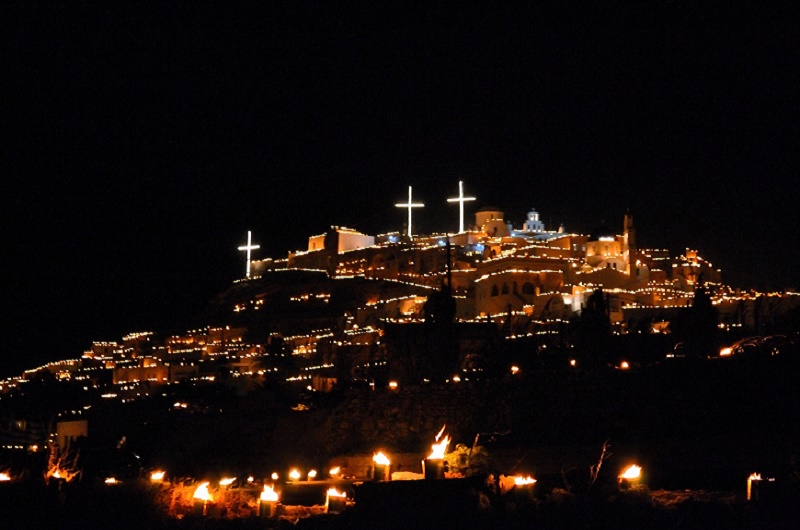Easter in Greece is a unique experience every year for locals or tourists. The Easter atmosphere and customs in combination with the shining Spring, make Easter in Greece an unforgettable experience of a lifetime!
Greece plays host to religious festivals with deeply rooted customs and centuries-old traditions all year round. One of the greatest celebrations of Christianity is Easter. The faithful Christians all over Greece follow the Holy Week ritual devoutly, giving themselves body and soul into the culmination of the Passion of Christ and finally rejoicing in His Resurrection. Let’s take a deeper insight into ancient-old rituals and traditions…
On Maundy Thursday the Service of the Holy Passion is held; the preparations for the celebration of the Resurrection also start on that day. Housewives traditionally prepare the Easter brioche (“tsoureki”) and dye eggs with special red dyes, a custom that symbolises the rebirth of life and nature. On Good Friday, the sacred day of the culmination of the Passion of Christ with the Deposition from the cross and Christ’s burial, people decorate the Epitaph, as the tradition wants the Crown of Thorns of Jesus Christ to be covered with flowers. On this day of bereavement, the devout Christians are supposed not to eat anything. The Epitaph Mass takes place in the evening and then follows the circumambulation; people join the procession on its way through the streets of every single village and city listening to chanters reciting the funeral psalms in a mystic atmosphere of devout concentration.

On Easter Saturday morning, preparations start for the festive dinner of the Resurrection night and housewives cook “maghiritsa” (a tripe and herbs soup). Before midnight, people gather in church holding white candles, which they light with the “Holy Light”. The Resurrection of Christ is celebrated at 12.00 sharp with drum beats and fireworks. When “Christós Anésti” (Christ has risen) is proclaimed against a background of loudly pealing bells, an impressive display of fireworks light up the night sky. People say the phrase “Christós Anésti” to one another. The response is “Alithós Anésti” (He has truly risen). Then they all gather around the festively laid table, they crack red eggs and feast on the traditional “maghiritsa”. On Easter Sunday morning, as the 40-day period of fasting finally comes to an end, in many parts of the country lamb is prepared on the spit. In other regions, the meat for the Easter table – lamb or kid – is roasted in the oven. The atmosphere is festive- full of joy and excitement! The Easter tables are set and people merrily rejoice, eat and drink with their family until late at night.
Easter celebrations are exciting all over Greece; some of the most famous destinations to celebrate Easter are considered to be Corfu, Skiathos, Patmos, Chios, Leonidio and Monemvasia. There you can have the one-of-a-kind opportunity to delve into an overwhelming spiritual atmosphere and participate into sacred rituals, ancient-old traditions and joyful celebrations!
Source: http://www.visitgreece.gr/


